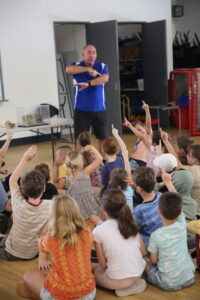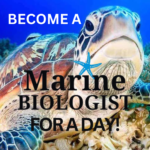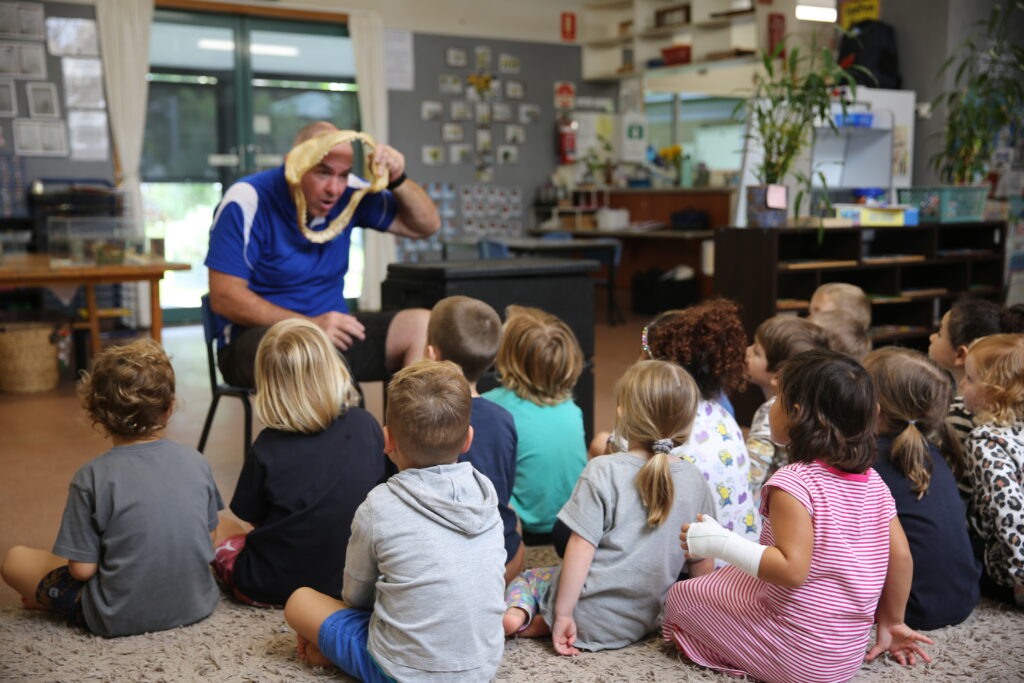Education is key to understanding the ocean and how crucial it is to our existence, as well as inspiring people to want to protect it. So, the role of a marine teacher is a very important one. But what do marine teachers do?
The Role of a Marine Educator in Schools
The crucial role of a marine educator is to foster curiosity, imagination, knowledge and enthusiasm. As humans, we only generally care about what we know, so education makes a big difference if you want people to connect with and protect the ocean. Creating awareness at an early age is crucial in the creation of life-long ocean guardians.
We aim to do this through introducing children to our diverse range of live marine animals and presenting engaging lively ocean-experience activities that teach all ages about marine science and ocean conservation.
 Ocean Life Education’s Marine Educators
Ocean Life Education’s Marine Educators
Ocean Life Education’s lead marine educator, Richard Coward, is a qualified Marine Biologist and heads our crew of marine educators who travel around southern Queensland educating kids. Not only are they all very knowledgeable but they are also passionate advocates for the ocean and engage kids to want to learn.
Qualifications to Become a Marine Teacher
Marine teachers have a minimum degree and frequently a master’s in marine biology. They often undertake extensive research projects and have wide-ranging first-hand experience…and fascinating stories to tell!
Specialist Teaching Roles
An estimated 80% of all life on earth is found under the ocean surface and more still inhabits coastlines. So, as you can imagine teaching roles include many fascinating specialisations. Consider the range of animals alone, from the tiniest microbes and plankton to the massive blue whale! There will always be a need for marine teachers to pass on their knowledge about these things.
Where do Marine Teachers Work?
As the ocean covers over 70% of the planet, you will find marine teachers all over the globe, from the icy north and south poles to the warm tropical waters of the Caribbean. In Queensland, marine educators may work on the Great Barrier Reef Marine Park or as expert guides on whale watching tours. Other areas of work include:
- conservation and marine parks
- fisheries and the fishing industry
- planning and management
- universities
- museums and zoos
- marine science institutions
- power generation (sustainable please!)
- engineering and consulting
- government and industry.
Interested in Becoming a Marine Teacher?
Read our blog to find out How to Become a Marine Biologist in Queensland
Information about teaching in Queensland Marine Teachers Ass QLD
 Check out our Marine Biologist for A Day Program – Ages 7-12 years
Check out our Marine Biologist for A Day Program – Ages 7-12 years
Our Goal
Ocean Life Education’s goal is to educate children about how our lives are interconnected with our ocean and to inspire them to feel a responsibility to take action to protect it.



